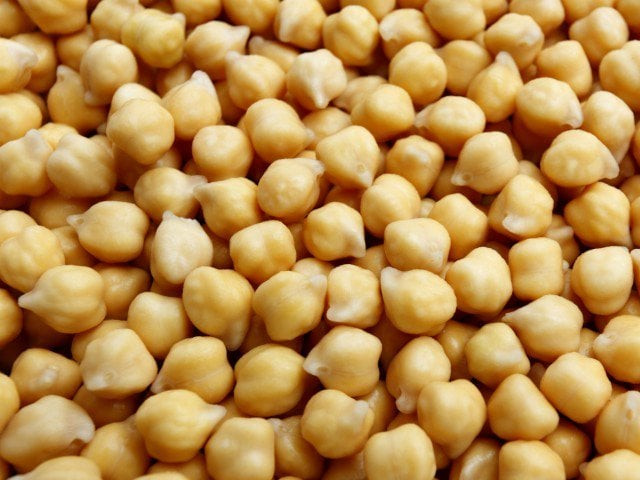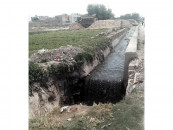Prolonged lack of rain threatens gram cultivation in Bhakkar
In the district, majority of gram cultivation takes place in Mankera tehsil

PHOTO: FILE
A lack of rainfall has affected gram cultivation in Bhakkar. Majority of the land in the district is deserted and is more commonly known as the Thal Desert. Farming remains to be the main source of income for individuals who anxiously wait for adequate rainfall so that their crops thrive.
A 2013 research paper titled Thal Desert: A Research Study on Understanding Desert Ecology and Livelihood Patterns highlights that the majority of the area consists of sand dunes with some flat land. The area is rain fed and gram is the main cash crop in the desert; farming is the main source of income for those living in the area. Communities are severely affected when crops don’t flourish due to a lack of rainfall, the paper reads.
Agriculture Officer Chaudhry Ibrahim states that chickpeas are harvested on more than one million acres in Bhakkar. Of this land, approximately 90,000 acres are located near canals; the crops are irrigated through the water in the canals while the rest needs rainfall to thrive.
Bhakkar In charge Malik Suleman stated that approximately 25 to 30 kilogrammes of seeds are sowed in one acre. In the past six years, the maximum output was achieved in 2013 which was nine tonnes of grams per acre. In comparison, in 2018 it fell to 2.56 tonnes per acre.
The main reason for the decrease is a lack of rainfall. Farmers continue to sow seeds but they never germinate because of insufficient rain.
In Bhakkar, Mankera tehsil consists mostly of deserted land and sand dunes. As a result, cultivating crops is very difficult for farmers because the sand is unstable and can be eroded by the wind. Agriculture Extension Assistant Director Dr Suleman says that approximately 60% of the sand dunes in the tehsil have been affected due to a lack of rainfall. This affects crops leaving farmers helpless, he explains.
In the district, majority of gram cultivation takes place in Mankera tehsil. However, the government has failed to facilitate farmers because of which farmers are in dire straits. They are unable to get a return on their investment because the crops never flourish. As a result, they borrow money and are unable to pay it back because the crop doesn’t grow; they remain embroiled in this vicious cycle.
One possible solution to overcome water shortage is to install sprinklers. However, the cost of installing sprinklers exceeds amount of money earned from the crops. In 1998, the government introduced a scheme through which they provided 300 farmers with tube wells, which are still in use today.
Farmer Zafar Mehdi Hayat Cheema expressed that he has been cultivating grams on 400 acres for the past 18 years. “The year 2013 was the best year for the harvest. Almost 800 sacks of grams were cultivated,” he reminisces. In comparison, during the last year, a mere 120 sacks were obtained after the harvest, he adds.
The government should provide farmers with subsidies on solar panels and sprinklers. This will help us in gram cultivation regardless of whether it rains or not, he urges. Further, the government should import a gram harvester and should provide us with labour in order to affectively harvest the crop, he adds.



















COMMENTS
Comments are moderated and generally will be posted if they are on-topic and not abusive.
For more information, please see our Comments FAQ